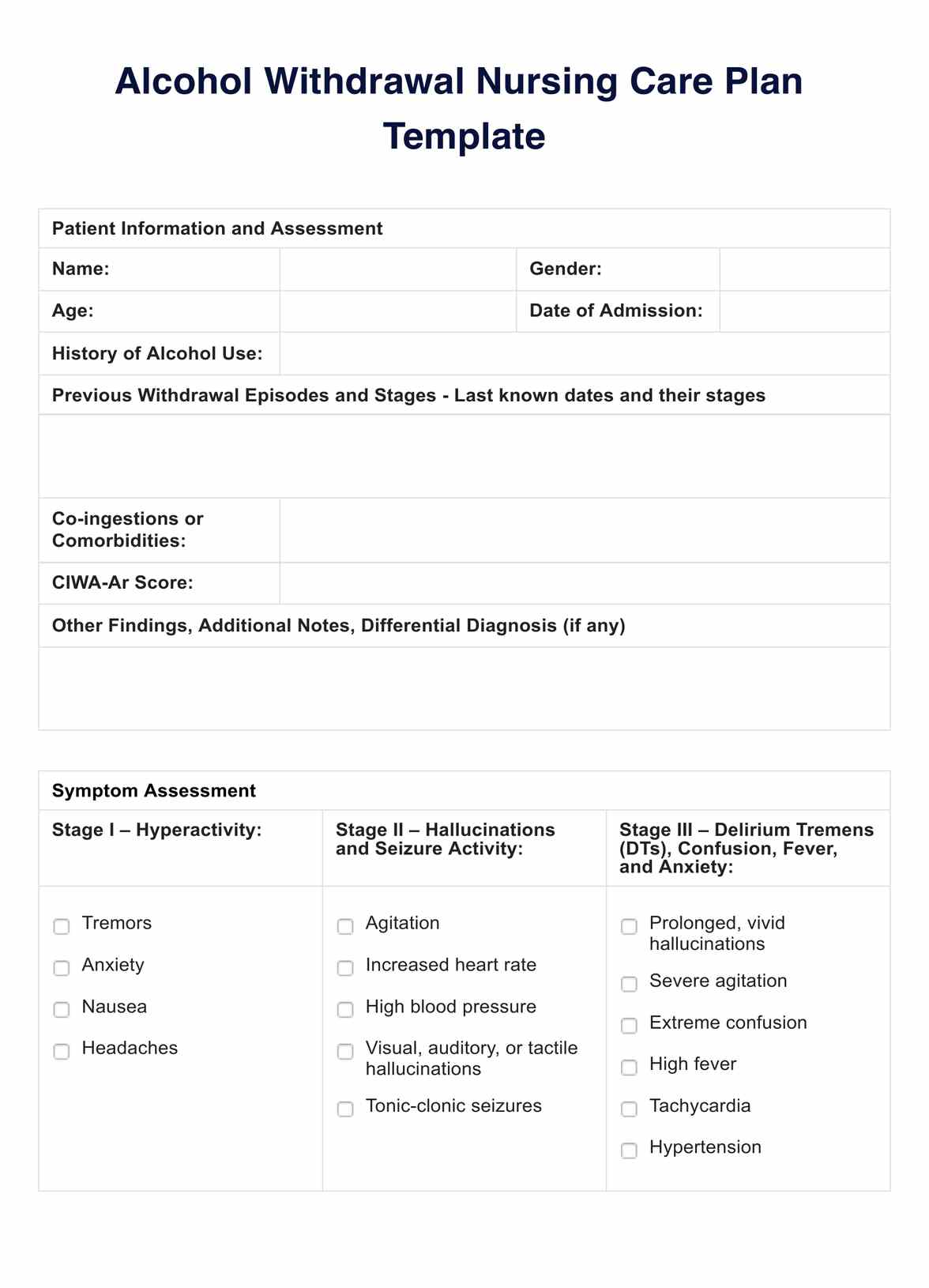To create a template, gather key patient information, including medical history and withdrawal patterns. Use tools like the CIWA-Ar scale for symptom severity. Collaborate with healthcare experts, tailoring sections for pharmacotherapy, supportive care, and monitoring.












